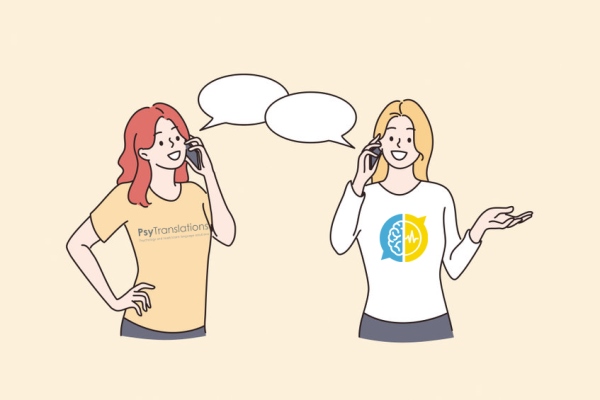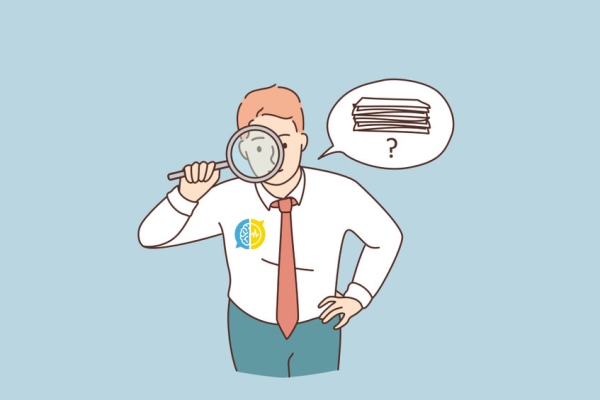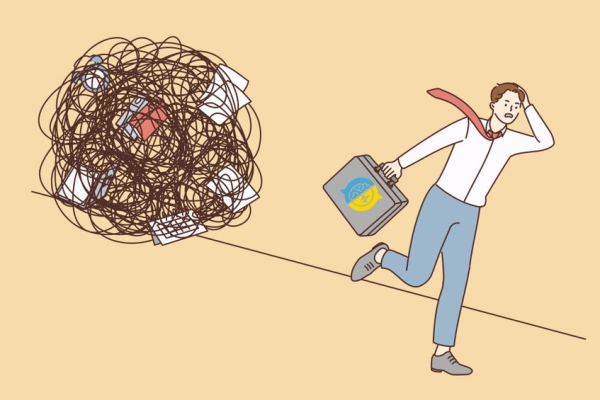
Psychology translations—What’s in it for you and what’s at stake?
Last week, we celebrated International Translation Day. To add a little more to the discussion, I'd like to address some questions and concerns I sometimes hear from psychologists and academics when they're thinking of working with translators.
For context, I work from English to Spanish, but I think these issues apply to any language combination and probably to other professional areas too.
Content
Asking a bilingual colleague
“What would a translator do for me? I can ask my colleague; she knows English and Spanish.”

Translation requires skills that go beyond just knowing languages. When we, as translators, take on a text, we do it differently than someone who knows languages, even if that person specializes in psychology (I was a psychologist before becoming a translator, so trust me on this!).
Without expertise in the specific skills of translation, an amateur (your bilingual psychologist colleague or cousin who knows some Spanish)
- might fall prey to false friends (e.g., “involve” for “envolver”, “actually” for “actualmente”);
- even if they specialize in a particular area, might not have the knowledge or resources to identify ambiguities (e.g., does “brain” here means “cerebro” or “encéfalo”?, what's the appropriate translation for “obesophobia” in the context of eating disorders?, do people have a disability or disabilities?);
- might fall into the trap of copying the English structure or style (e.g., verbs at the end of long sentences);
- might not be completely au fait with Spanish language rules (e.g., on accents, capitalization, or acronyms) and might copy the English format;
- might not be as alert to cultural differences (e.g., if the text mentions the FDA, a psychometrician, and asks about playing American football); or
- might employ terms that “everybody” uses automatically in your field, without questioning whether they're actually correct or appropriate for the specific context (e.g., “sistema inmune” for “immune system”, “línea basal” for “baseline”).
And to clarify that “translator” doesn't mean a bilingual researcher or colleague, the ITC guidelines for tests, the ISPOR's principles of good practice for patient-reported outcomes, and the CCSG's guidelines for cross-cultural surveys, among others, mention “professional translators”.
Using automatic translation or artificial intelligence
“Why not use Google Translate or AI and just check it afterward?”

Google Translator Logo
While machine translation technology is progressing really fast, it still produces literal translations, and it doesn't cope well with false friends, ambiguities, and technical terms.
Editing this kind of output is in fact a specialized field within translation called “post-editing”, and the results will depend not only on the translator but also on the translation technology used. Using a free and general tool like Google Translate will only add difficulties to an already challenging task.
Here are some more pitfalls of automatic translation:
- The tool omitted a part of the original. Now you have to check the English and Spanish sentence by sentence to make sure everything is there.
- The tool's output seems to be fine, but you're not completely sure if it correctly interpreted ambiguities. Again, you'll have to check sentence by sentence to make sure it chose the right terms (e.g., does “biannual” mean “twice a year” or “every two years”?).
- The tool was inconsistent within the same text (e.g., to translate “you”, sometimes it used the formal “usted” and sometimes the informal “tú”; it used “coche”, “auto” and “carro” for “car”). Now you have to check everything again.
- Even if you're a specialist in your area, you might fail to spot some false friends when reviewing the translation output.
- Problems with confidentiality.
This applies too to artificial intelligence tools that were launched around 2022. If you're curious, in a more recent article about a specialized field of knowledge within psychology, I show how ChatGPT and Google Translate outputs compare with a translation done by a professional translator.
Fearing the technical aspect won't be right
“I'm not confident that a translator will 'get' my specialized psychology text. I'd rather leave it to one of my colleagues.”

For every specialist discipline or subdiscipline, you can be sure there's a translator who specializes in it, whether it's medicine, finance, wine, agriculture, fashion, and everything and anything in between.
It's natural to think that someone outside of your field will struggle to understand your specific area. Nonetheless, I'm sure there are translators specialized in your field or a similar one. And, of course, if your topic is psychology, I'm an example of a translator who specializes in this field and who is also a psychologist.
Remember: Translating is about much more than knowing the right terms. Even if your translator is not an expert on a very niche topic, with good research and communication skills, you'll work together to produce an excellent translation.
And if you're still unsure, you can involve your bilingual expert as a reviewer of the technical content by putting them in touch with the translator.
Ignoring the negative consequences
“So what's the big deal? What could possibly go wrong?”

It depends. It depends on what you need and how important it is for you. Ask yourself: How important is it for me to have my article published? How much do I care about delays in my clinical study? Below are some examples of what could happen if you decide not to use translators (in this case, translators specialized in psychology and healthcare):
- Articles: Your paper is rejected because of unintelligible text, poor style, or not adapting the APA style to Spanish rules.
o You need to review the text again and again.
o Possible loss of relevance because of delays.
- Clinical study documentation: The Ethics committee objects because informed consents are unclear and patient-facing documents aren't adapted to the cultural context of the subjects.
o You get behind schedule.
o Higher costs when you finally have to hire a professional translator or reviewer.
- Test adaptation: Items don't function as expected and the test needs more rounds of revision.
o Your work won't conform to the established guidelines in the field.
o Your methodology seems less reliable in your peer's eyes.
o The process becomes lengthy and costly if items don't work as expected.
Translators have the appropriate cultural and linguistic skills to convey your message. We also have the experience to ask you the right questions to clarify ambiguities and problematic areas, and the specialized resources to figure them out. We help you avoid delays and rounds of reviews that will offset any costs that you could be “saving” when you rely exclusively on bilingual colleagues or automatic translation. As the CCSG puts it: “Translation costs will make up a very small part of a survey budget and cannot reasonably be looked at as a place to cut costs.”
And if you're looking for a reliable English to Spanish translator specialized in psychology, including clinical research, neuropsychology, disability, and test adaptations, don't hesitate to contact me!

is a psychologist and English to Spanish translator. She specializes in the fields of psychology, healthcare and medicine, and education. In this blog, she writes about everything she knows or has learned that could be useful or of interest to you!